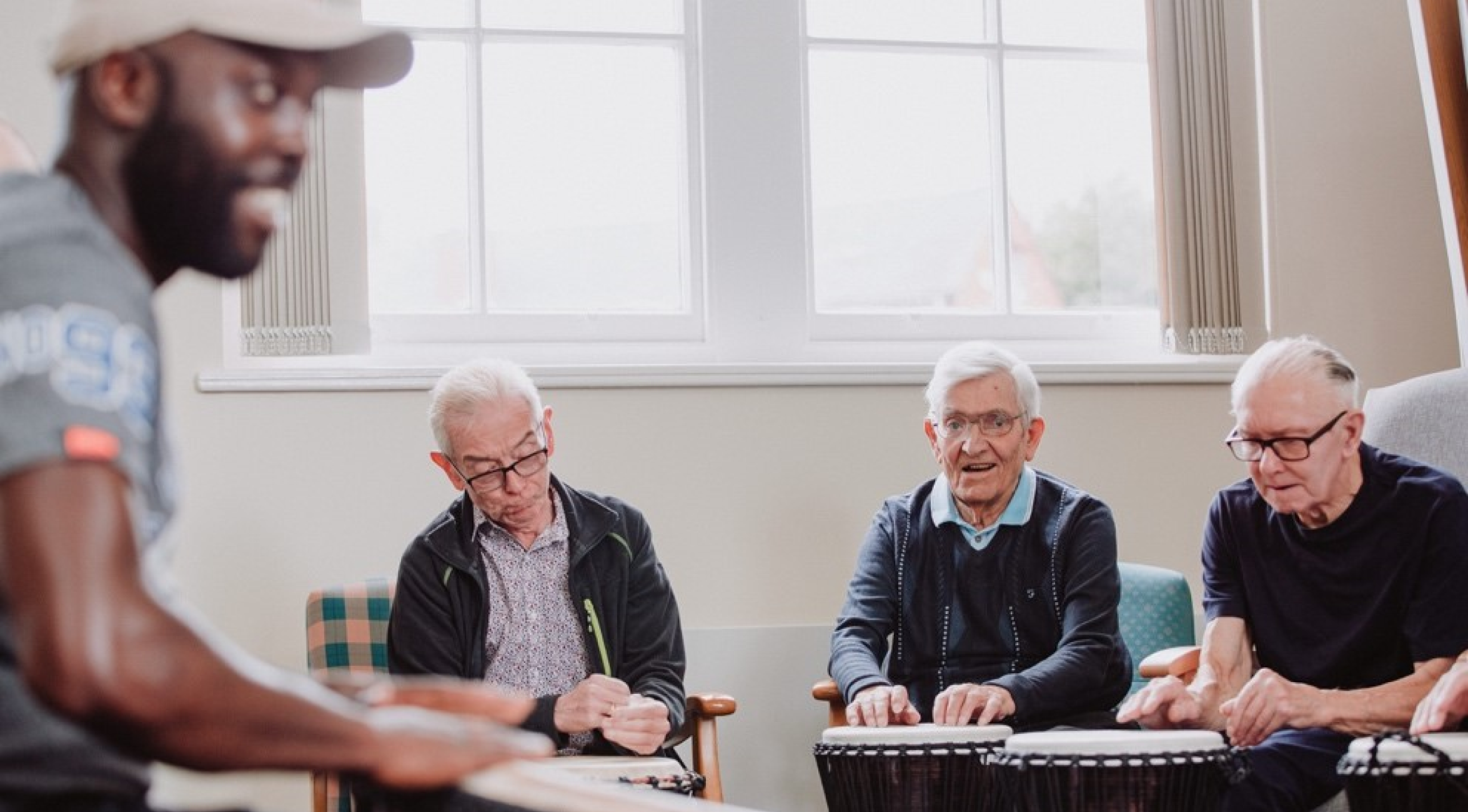Published October 2020

Summary
Music therapy can enhance people’s lives, and stimulate their minds. Dr Fabia Franco and her team are assessing the impact of music therapy on older people’s cognition through a randomised controlled trial. An important factor in this will be the use of human-like robots in addition to the face-to-face sessions, to see whether this is a viable way to deliver the therapy.
The robot wouldn’t replace music therapy delivered by humans, but could increase the options available and enable music therapists to interact with more people without always having to be physically present
Dr Fabia Franco
In music therapy, trained therapists interact with people to establish an emotional and practical connection. Music therapy can enhance people’s quality of life, and has been shown to improve cognitive abilities.
However, we are lacking clear evidence from randomised controlled trials in care homes that shows music therapy can benefit older people, particularly in terms of cognitive benefits.
As well as testing the benefits of music therapy itself, we also want to include another important intervention within our trial. Robotic technology has come a long way and is now used for a variety of personal support purposes, so we are interested in whether a human-like robot could assist in delivering the therapy.

Measuring the benefits of music
In our trial, we will first assess healthy older adults in the community, measuring their cognitive abilities and seeing if there are any changes with music therapy. We will then include care home residents who have varying degrees of cognitive impairment in a further arm of the trial.
We will be monitoring progress using a range of cognitive tests in the hope that improvements are seen not just in the music therapy sessions, but are transferable to other daily activities as well. We will also be taking measurements of stress and other changes through biomarkers, such as cortisol in the saliva. This is to understand the impact that the therapy has on people’s wellbeing in addition to their cognition.
Musical robots
The final variable we will be testing is the use of a human-like robot to deliver sessions in between those delivered by a music therapist. One group in the study will receive a music therapy session with a therapist every week, whereas the other group will receive a face-to-face session every fortnight, with a robot-led session on the weeks in between.
The interaction is between the participant and the caregiver, but facilitated by the robot
Dr Anthony Mangiacotti
The robots will be programmed with input from the music therapist, who will be able to monitor progress to adjust the therapy and decide what to do in the next session. Using robots also gets caregivers involved in the therapy, as the interaction is between the participant and the caregiver, but facilitated by the robot. The robotic elements of the study are being supervised by our colleague, Dr Eris Chinellato.
As COVID-19 has shown, there is often a need to deliver therapeutic interventions without face-to-face interaction. In addition, care homes often don’t have the resources to hold frequent music therapy sessions. The robot wouldn’t entirely replace music therapy delivered by humans, but could increase the options available and enable music therapists to interact with more people without always having to be physically present.

A realistic trial
A key aspect of our trial design is that the number of music therapy sessions given to residents is a realistic number for care homes to deliver, especially with their often limited budgets.
Although this research is mostly taking place in care homes, we hope that some of the benefits of the study will be useful for enabling musical interaction in the community with healthy older adults, in order to foster cognitive reserve.
Additionally, the robots that we’re using are small, portable, and not prohibitively expensive – making them a realistic option for care homes and community groups.
The robot wouldn’t replace music therapy delivered by humans, but could increase the options available and enable music therapists to interact with more people without always having to be physically present
Dr Fabia Franco
We have a large international team(1) on this project, and the Dunhill Medical Trust is a very good match with the kind of work that we’re doing. So far, our experience with the DMT has been extremely positive – communication is fast, and they are genuinely interested in our research.
Notes:
- The other collaborators on this project are:
- Prof Michele Biasutti (Padua University, Italy) – music psychology and education/training
- Dr Giovanni Di Liberto (ENS, Paris) – bio-engineering and neuroscience
- Prof Gianfranco Gabia (Padua University, Italy) – endocrinology
- Dr Ming Hung Hsu (MHA, Methodist Home Association) – lead music therapist at MHA
- Prof Dr Martine Van Puyvelde (Brussels Vrije University/RMA) – biological psychologist
- Dr Emma Ward (Middlesex University, London)
- Lead photo: Courtesy of MHA


1 comment